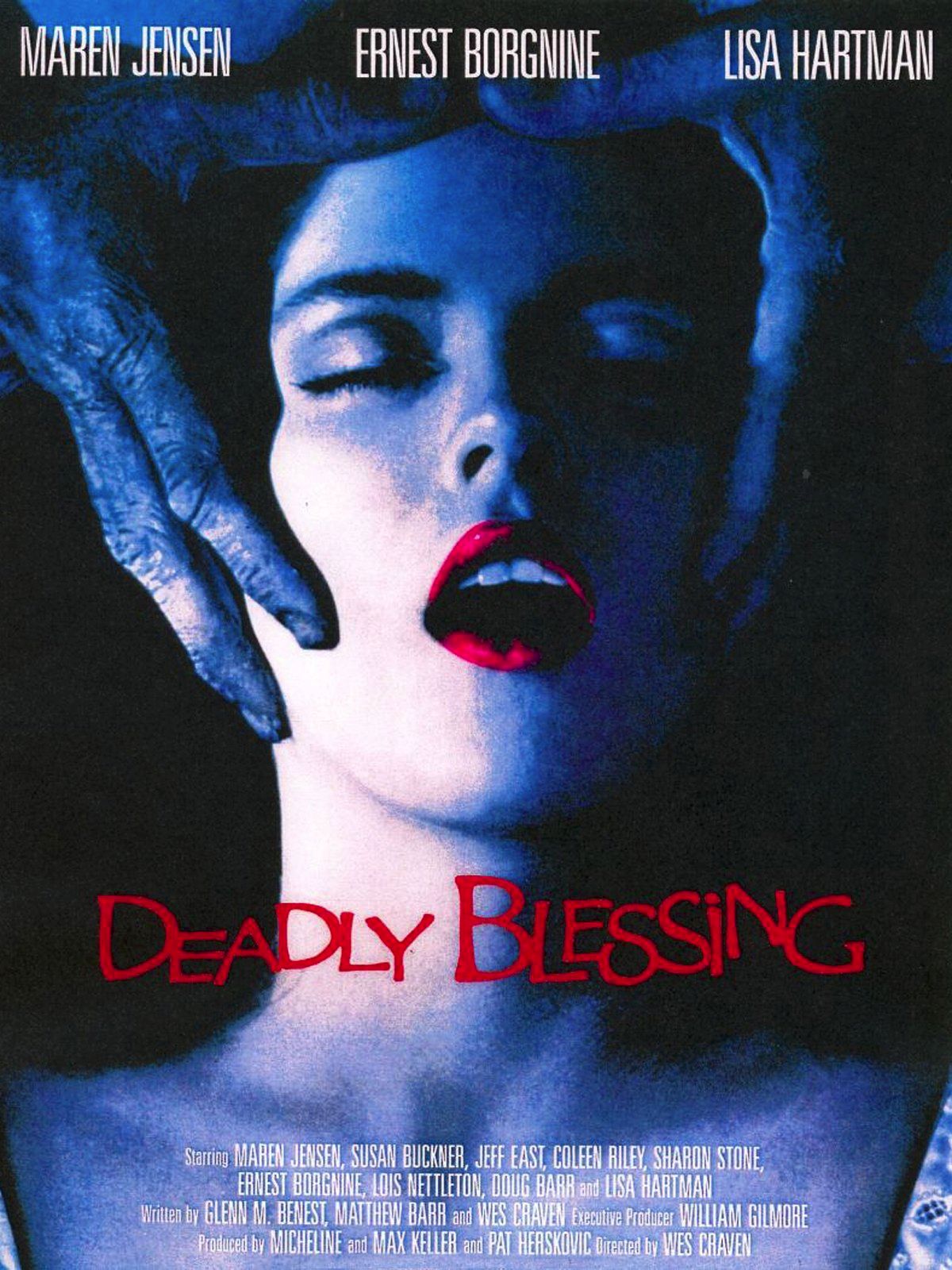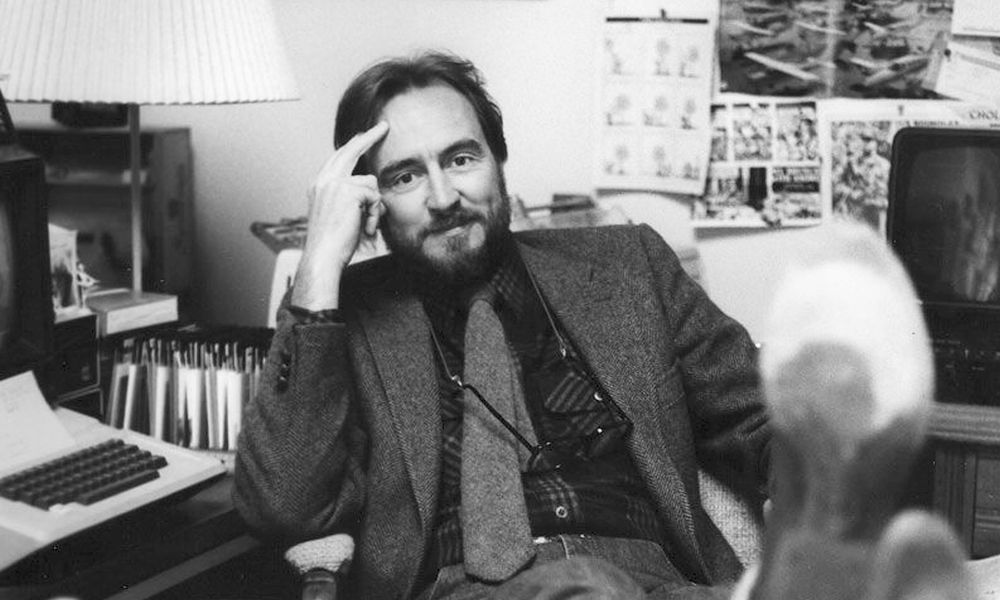"Initially making an impact in the exploitation field of the early 1970s, Wes Craven is a resourceful writer and director known as one of the horror genre's most creative, innovative and resilient visionaries." - William Sean Wilson (501 Movie Directors, 2007)
Wes Craven
Director / Screenwriter / Editor
(1939-2015) Born August 2, Cleveland, Ohio, USA
(1939-2015) Born August 2, Cleveland, Ohio, USA
Key Production Country: USA
Key Genres: Horror, Slasher Film, Teen Movie, Horror Comedy, Supernatural Horror, Thriller, Comedy
Key Collaborators: Marianne Maddalena (Producer), Patrick Lussier (Editor), Marco Beltrami (Composer), Neve Campbell (Leading Actress), Courteney Cox (Leading Character Actress), Kevin Williamson (Screenwriter), Cathy Konrad (Producer), Peter Deming (Cinematographer), David Arquette (Leading Character Actor), Liev Schreiber (Character Actor), John Saxon (Leading Actor), Heather Langenkamp (Leading Actress)
Key Genres: Horror, Slasher Film, Teen Movie, Horror Comedy, Supernatural Horror, Thriller, Comedy
Key Collaborators: Marianne Maddalena (Producer), Patrick Lussier (Editor), Marco Beltrami (Composer), Neve Campbell (Leading Actress), Courteney Cox (Leading Character Actress), Kevin Williamson (Screenwriter), Cathy Konrad (Producer), Peter Deming (Cinematographer), David Arquette (Leading Character Actor), Liev Schreiber (Character Actor), John Saxon (Leading Actor), Heather Langenkamp (Leading Actress)
"Former humanities professor turned master of the macabre. Craven began his film career as an editor and assistant producer to Sean Cunningham and is best known for inaugurating the commercially successful Nightmare on Elm Street series… An element of self-parody has crept into the director's later work, while devotees of the horror genre tend to prefer his earlier, less fanciful efforts (e.g. The Hills Have Eyes 1977)." - The Virgin International Encyclopedia of Film, 1992
"Wes Craven was a horror pioneer three times over. In the 1970s, he wrote and directed several films that delivered a new level of intensity and explicitness to the genre. Most notorious was his debut, The Last House on the Left (1972), the relentless tale of the torture of two women and the revenge doled out to the killers by the victims’ parents… In 1984, Craven enjoyed his greatest success with A Nightmare on Elm Street, which lent a fantasy aspect to the slasher genre popular at the time. Whereas the killers in hits such as Friday the 13th or Halloween had been corporeal, Craven devised a monster, Freddy Krueger, who pursued his victims through the infinite space of their dreams… Craven’s hat-trick was completed in 1996 when he directed Scream, best described as a horror movie that knows it’s a horror movie. Though the idea had not come from him (Kevin Williamson wrote the screenplay), it was consistent with his sensibility." - Ryan Gilbey (The Guardian, 2015)

Scream (1996)
"Genteel, literate director who has turned out some of the most relentless horror films ever made… He caused a stir with his first directorial outing, Last House on the Left (1972), a shockingly violent tale of senseless mayhem and revenge reportedly adapted from Ingmar Bergman's The Virgin Spring." - Leonard Maltin's Movie Encyclopedia, 1995
"Raised in an ultra-strict variant of the Baptist faith, Wes Craven’s exposure to the horror genre didn’t occur until he was pushing 30… Few directors ever become a household name, but Craven’s dark imaginings connected repeatedly with a mass viewership. His knack for transforming intellectual ideas reflecting our primal fears and social anxieties into movies that appeared to be ahead of the industry curve served to mark him out from the pack. Despite being routinely plagued by studio interference, hugely so in the case of Deadly Friend (1986) and Cursed (2005), Craven’s contributions to genre cinema are gigantic enough to be era-defining several times over." - Martyn Conterio (BFI, 2019)
"Wes Craven is one of the more articulate and thoughtful of American directors. Surprisingly, perhaps, with only a couple of minor deviations, he has specialized in the horror genre… Most of Craven's output from the 1980s is disposable, with the important exception of A Nightmare on Elm Street (1984)." - Ronald Bergan (Film - Eyewitness Companions, 2006)
"One of the horror genre's best-known and most celebrated directors, Wes Craven was widely credited with reinventing the teen horror movie. Initially gaining fame and notoriety for his Nightmare on Elm Street series in the 1980s, Craven enjoyed a second wave of popularity in the 1990s with his phenomenally successful Scream series, which spoofed the teen horror genre even as they revived it. The films kicked off a trend in teen horror films, inspiring any number of imitators that, for the most part, failed to live up to Craven's own work." - Allmovie
"I like to address the fears of my culture. I believe it's good to face the enemy, for the enemy is fear." - Wes Craven
Selected Filmography
{{row.titlelong}}
Wes Craven / Favourite Films
La Belle et la bête (1946) Jean Cocteau, Dr. Strangelove or: How I Learned to Stop Worrying and Love the Bomb (1964) Stanley Kubrick, Forbidden Games (1952) René Clément, Network (1976) Sidney Lumet, Psycho (1960) Alfred Hitchcock, Red River (1948) Howard Hawks, Repulsion (1965) Roman Polanski, The Tenant (1976) Roman Polanski, El Topo (1970) Alejandro Jodorowsky, The Treasure of the Sierra Madre (1948) John Huston.
Source: Sight & Sound (1992)
La Belle et la bête (1946) Jean Cocteau, Dr. Strangelove or: How I Learned to Stop Worrying and Love the Bomb (1964) Stanley Kubrick, Forbidden Games (1952) René Clément, Network (1976) Sidney Lumet, Psycho (1960) Alfred Hitchcock, Red River (1948) Howard Hawks, Repulsion (1965) Roman Polanski, The Tenant (1976) Roman Polanski, El Topo (1970) Alejandro Jodorowsky, The Treasure of the Sierra Madre (1948) John Huston.
Source: Sight & Sound (1992)
Wes Craven / Fan Club
Sergio Silva, Joe Bob Briggs, Edgar Wright, Filipe Furtado, Raya Martin, David Pirie, David Jenkins.
Sergio Silva, Joe Bob Briggs, Edgar Wright, Filipe Furtado, Raya Martin, David Pirie, David Jenkins.
"Fan Club"
These film critics/filmmakers have, on multiple occasions, selected this director’s work within film ballots/lists that they have submitted.
These film critics/filmmakers have, on multiple occasions, selected this director’s work within film ballots/lists that they have submitted.


